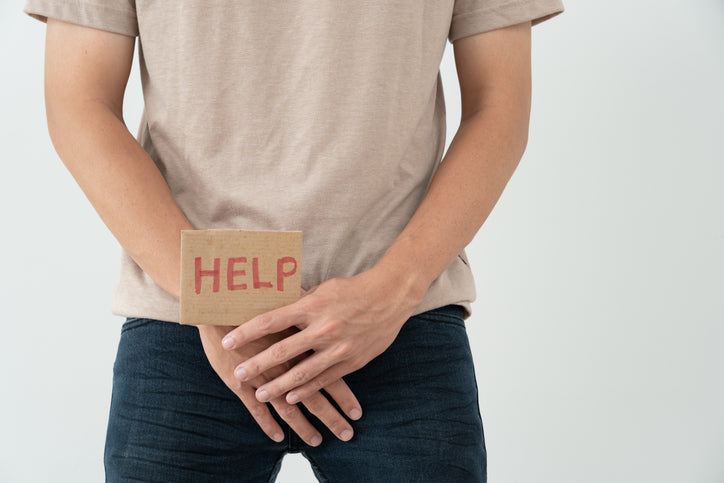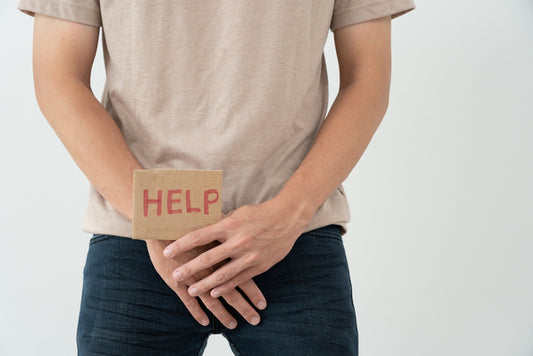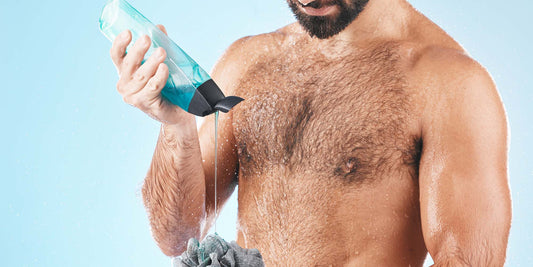A Doctors Guide to Ball Deodorant: Keeping Your Balls Fresh and Odour-Free
Are you wondering if it's safe to use deodorant on your balls? The answer isn't straightforward, as it largely depends on the type of deodorant in question.
In this guide, we’ll explore the best practices for maintaining freshness for your crown jewels, including safe deodorant options and hygiene tips.
Is it safe to put deodorant on your crotch?
Using traditional supermarket deodorants on your sensitive areas is a big "NO."
These products are formulated for the less sensitive skin of your armpits and often contain harsh ingredients like alcohol, chemicals and fragrances.
Applying these to the sensitive skin in your genital area can lead to irritation, burning, redness, and allergic reactions.
Any kind of irritation or inflammation can increase your susceptibility to infections.
What Deodorant Is Safe for My Balls?
If you're looking for a deodorant that’s safe for your crown jewels, consider natural alternatives.
Deodorants made with ingredients like cornstarch and arrowroot are excellent choices. They effectively absorb moisture and sweat while minimizing friction – which make them a good choice for those men looking for ball deodorants that also have anti-chaffing properties.
Additionally, maintaining proper hygiene and opting for breathable underwear can significantly reduce odours.
Is Baby Powder or Talcum Powder Safe for My Balls?
The jury is out on that one. Talcum powder, like cornstarch and arrowroot, can certainly soak up sweat, and reduce friction and chaffing.
However, some older talcum powders may contain asbestos, a known carcinogen. Although modern talcum powders are regulated and should be asbestos-free, it’s crucial to verify the product's safety.
There have been concerns about the potential link between talcum powder and cancer, particularly ovarian cancer. The evidence is more mixed and primarily related to genital use by women, but it's a factor to consider. Cornstarch and arrowroot are natural alternatives that do just as good a job without the risks.
Is it weird that I apply antiperspirant to my crotch?
While it might seem unusual to some, many men (and women) find it helpful for managing sweat and odour, especially during workouts, hot days, or before a hot date....
Generally, it's a personal choice that can work well, but it's also important to be mindful of your own skin's sensitivity.
If you're considering this or have any concerns about excessive sweating or skin irritation down there, it's always a good idea to: use natural deodorants; wash your penis and balls everyday with a pH adjusted wash like Dr Macks Cleaner and consider having a friendly chat with your healthcare provider. There is absolutely nothing to be embarrassed about. Your Doctor or Chemist can offer personalised advice to keep you smelling fresh and feeling comfortable.
Understanding the Causes of Smelly Tackle
Several factors can contribute to unpleasant odours in your genital area.
The most common cause is inadequate cleaning.
A buildup of smegma (a white, cheesy substance found on the penis and under the foreskin) or sweat in your groin area can create an ideal environment for smelly fungi and bacteria to thrive, leading to some very stinky odours.
Additionally, infections, including sexually transmitted infections (STIs), can contribute to unpleasant smells.
How to keep your balls fresh and clean
Washing your penis and balls every day with a pH adjusted wash like Dr Macks Cleaner will keep smegma and sweat from building up and this in turn should stop a lot of bad smells.
Any time you feel that you are getting sweaty down there, try and find a way of cleaning the jewels – don’t let that sweat build up on the skin, or it will attract smelly bacteria. And always make sure to dry yourself properly after washing.
After washing and drying, you could try using products that contain natural sweat-absorbing properties like cornstarch and arrowroot. Give Dr Macks Perfecting Balm a try.
Wear breathable underwear.
And if you are concerned you could have an infection, particularly a STI, make an appointment to see a health professional – infections don’t go away by themselves.








